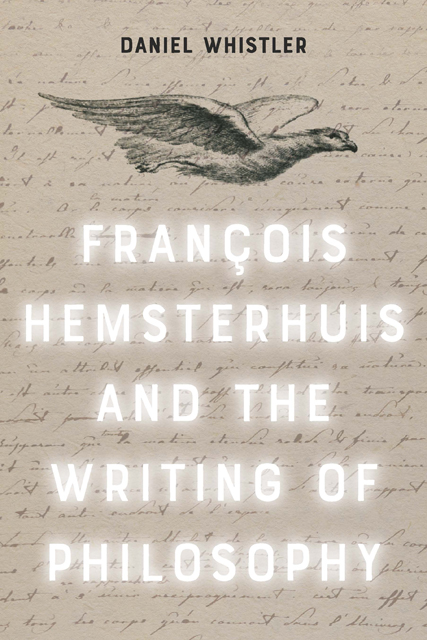Part Four - Time-Images
Published online by Cambridge University Press: 03 June 2023
Summary
Hemsterhuis scholars have often been wary to make too much of Rousseau’s influence. Hemsterhuis mentions Rousseau’s name but once in his mature published and unpublished writings and even then amidst a long list of names (B 1.124, 158); the publication of Rousseau’s confessional writings in 1782 makes no impact on Hemsterhuis’ correspondence of the time and his library contained only one Rousseau volume published after 1765 (van Sluis 2001: 49, 114, 120, 139). Nevertheless, the young Hemsterhuis adored Émile (B 12.23, 34) and this has given rise to an alternative tradition of scholarship that has been less guarded in perceiving Rousseau’s influence in Hemsterhuis works (e.g., Gobbers 1963: 200–1), and, indeed, my argument in previous sections (§1, §13) has been that Alexis, in particular, is engaged in a rigorous conversation with the early Rousseau. It is from this point that the final part of the book begins and, more specifically, it begins from the following claim: Hemsterhuis also emulates Rousseau in his attempt to write philosophy as an outsider, to take up a perspective external to the here- and now.
This strategy of writing as an outsider is threefold. First, it is present in Simon’s anecdote of the Scythian who comes to Athens from an ‘uncivilised’ outside to judge Greek culture: it is, Socrates relates, ‘necessary to be a Scythian to judge the nature [of the arts]’, for only an outsider can see them ‘as a whole’ and discern ‘the constitution of their nature’ (EE 2.109; OP 532). This reversal of the enlightened–barbarian binary (in which a supposed ‘barbarian’ takes up a master-position within ‘civilisation’) is common in the Francophone eighteenth century (e.g., Voltaire, Montesquieu) and structures Rousseau’s first Discours sur les sciences et les arts, which speaks, just like Hemsterhuis, of ‘inhabitants of some distant lands’ arriving in Europe to judge the arts and, in this context, even praises the Scythians (2018: 3, 9, 11; see also Moenkemeyer 1975: 137–9). In a similar fashion to his embrace of ‘barbarous language’ in response to Diderot’s enlightened materialism, Hemsterhuis follows Rousseau in interrogating the value of enlightenment from a viewpoint that ‘clash[es] head on with all that is today admired by men’ (Rousseau 2018: 4).
- Type
- Chapter
- Information
- Francois Hemsterhuis and the Writing of Philosophy , pp. 197 - 202Publisher: Edinburgh University PressPrint publication year: 2022



